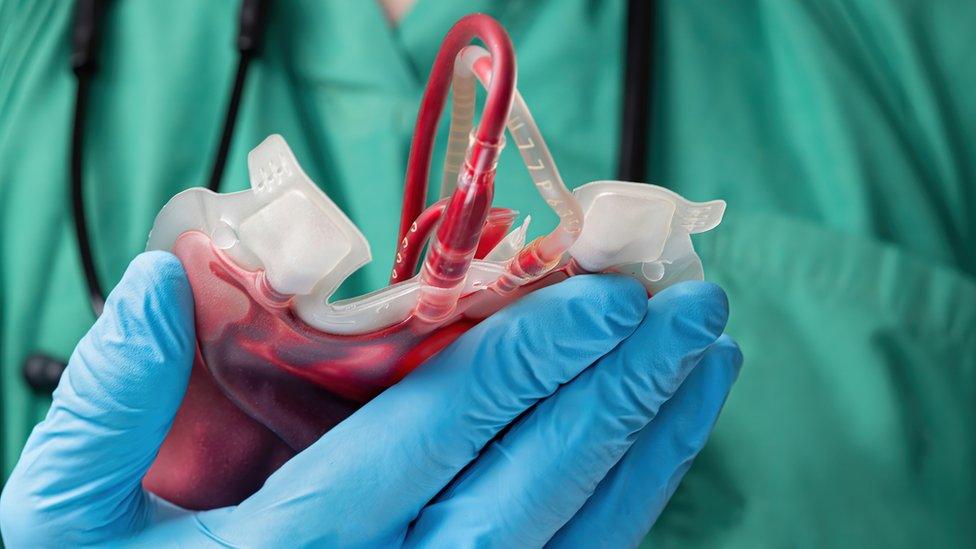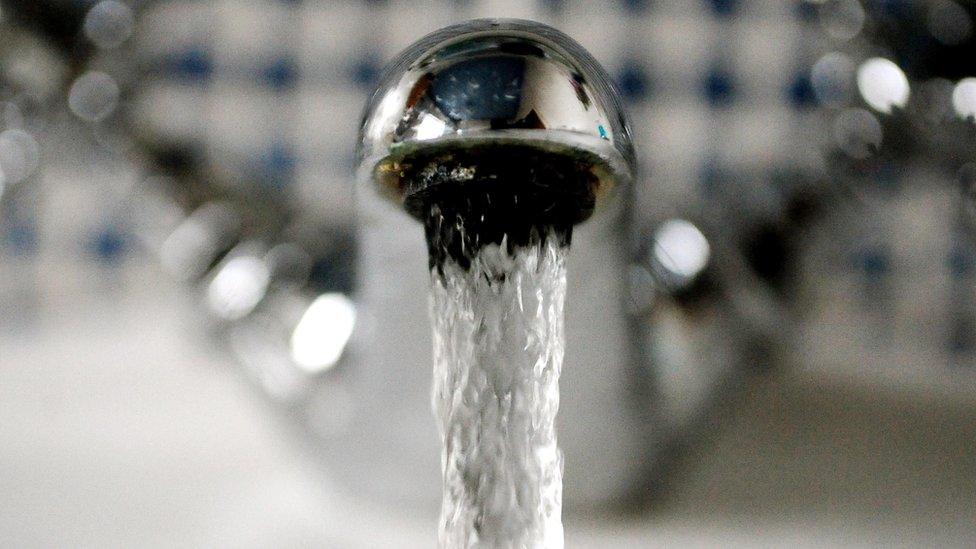Jersey blood donation a 'priority' for PFAS panel
- Published

Grace Norman said there were no internationally agreed levels for PFAS in the blood and no screening of donated blood for the chemicals
A scientific panel being set up in Jersey to help understand the effects of PFAS chemicals will prioritise blood donation, Public Health has confirmed.
Currently Jersey's blood donation service does not screen for levels of the man-made chemicals.
Jersey Public Health said this was in line with international policy.
The new panel could discuss whether the screening of blood donors for PFAS should be introduced.
A recent testing programme found a number of islanders who live near the airport had higher levels of PFAS in their blood than normal.
The most likely source of the contamination in Jersey is firefighting foam that leaked into the waterway from the airport training ground in the 1990s.
The chemicals are found in hundreds of everyday items, but they have been linked to health problems including testicular and kidney cancer, plus other diseases, including ulcerative colitis.
'Difficult to interpret'
Since then, some residents in the area have campaigned for more support from the government.
Last year, the government announced a new scientific panel on PFAS would be established.
Grace Norman, Jersey's deputy director for Public Health, said: "Despite growing international interest in the health consequences, it is difficult to interpret the evidence between PFAS and associated health impacts.
"There are no internationally agreed levels for PFAS in the blood, and nor are there screening tests for blood that has been donated."
Contaminated Humans
Dr Bruce Lanphear, Professor of Health Sciences at Simon Fraser University in Canada, said of the valuable role of blood donation and transfusion: "This to me is one of the biggest ethical dilemmas.
"We've seen this before. We've seen how humans have been contaminated with lead, arsenic, pesticides... now PFAS. We can find hundreds of these chemicals in all of us.
"What's the normal level of PFAS in our blood? Zero. These are synthetic chemicals.
"We should be assuming there are no safe levels of chemicals until proven otherwise."
'Undertaken testing'
The Joint United Kingdom Blood Transfusion and Tissue Transplantation Services Professional Advisory Committee (JPAC) has rules on donors whose occupations exposed them to hazardous materials, external, but nothing directly about PFAS.
The Committee on Toxicology (COT) advises UK government departments on the toxicity of chemicals in food, consumer products and the environment.
JPAC said COT was working on PFAS, external and referencing work being done by other national and international groups and JPAC would keep across this work.
Ms Norman said: "Jersey is in a relatively rare position of having undertaken testing for PFAS and the panel will support the government to understand the science in relation to PFAS and health.
"The question of blood donation will be explored by the panel as a matter of priority once it has been convened."

Follow BBC Jersey on Twitter, external and Facebook, external. Send your story ideas to channel.islands@bbc.co.uk, external.
Related topics
- Published14 March 2023

- Published3 March 2023

- Published13 January 2023

- Published18 October 2022

- Published22 August 2022
